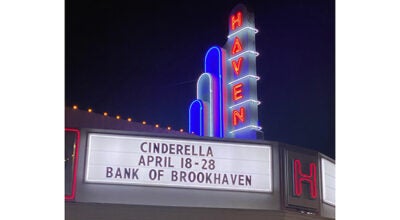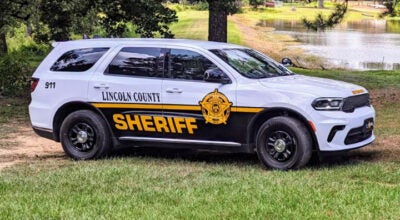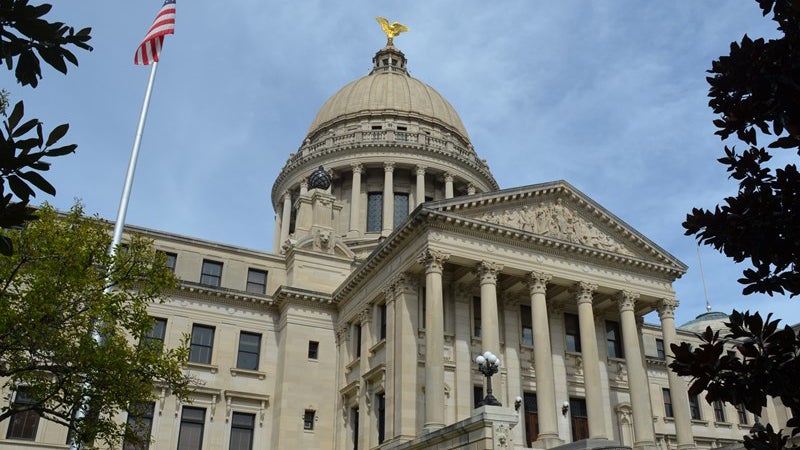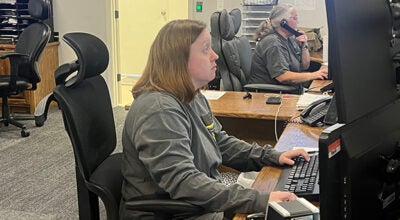Is it time to take a chance on the lottery?
Published 9:42 pm Friday, August 17, 2018
They were there by the dozens and dozens, the people of Brookhaven, standing in line together, shaking hands and smiling and swapping stories like it was a civic club meeting, or the fellowship hall, or the concession stand at Ole Brook. They knew each other and felt at home.
But that long line of happy Home Seekers wasn’t in Brookhaven, and it didn’t form up for a gospel meeting.
On that winter afternoon in January 2016, the line extended way out past the gas pumps from the glass front doors of the Kangaroo Express in Kentwood, Louisiana, the first convenience store a southbound traveler on I-55 comes to when crossing over into Cajun Country. It was just after 5 p.m., four hours ahead of a record $1.6 billion Powerball pot that would eventually be split by gamblers from California, Florida and Tennessee, and Americans coast to coast — Brookhavenites included — were excited to take that 1-in-292 million chance.
Lottery chances won’t ever be good, but Mississippians may not have to drive to Louisiana anymore just to grab a ticket.
Gov. Phil Bryant has called the Legislature back to a special session next week to find a stable method of funding to repair the state’s failing transportation network, and one of the money-makers he’s directed legislators to consider — alongside taxes on Internet sales and sports betting — is a statewide lottery.
“If it comes up, I am going to vote for it because it’s already been voted on by the people,” said District 92 Rep. Becky Currie, R-Brookhaven. “I most definitely don’t want to not do the will of the people. I’ve gotten a few emails against it, but hundreds for it.”
Historic actions
The will of the people was enacted back in 1992, when Mississippi voters approved an amendment to the state’s constitution legalizing a lottery. All that was left was for the Legislature to pass the enacting legislation, but lawmakers have never done it.
But they’ve tried. In 19 legislative sessions dating back to 1997, lawmakers have introduced bills to create a statewide lottery 71 times, and created one task force to study it. A handful of bills came out each year from 1997 to 2012, with most tied to specific causes, like education or fire funding or the Hope Scholarship.
But in 2013 lottery bills started piling up, and most of them were tied to no cause but themselves. Legislators introduced five lottery bills that year, followed by six in 2014 and 2015, and four in 2016. Eight bills authorizing a lottery were dropped in the hopper in 2017, and earlier this year lawmakers introduced 13 bills for the game of chance.
Still no lottery
And yet, Mississippi remains one of six states with no lottery. Alabama and Utah oppose the game on religious grounds, while Nevada holds the game at bay to protect the nationwide draw of its casinos — it has been suggested Mississippi remains without a lottery for the benefit of its casinos, too, Bible-minded voters notwithstanding.
Hawaii lawmakers are afraid a lottery will harm its tourism industry, and elected leaders in Alaska have enough oil money that they just don’t care.
Mississippi still cares about money, and the need for it seems to have made the lottery more palatable.
Infrastructure
Right now, more than 400 bridges across Mississippi are closed — and another 1,700 or so posted down to low weight limits — after the federal government forced the Mississippi Office of State Aid Road Construction to let a $30 million contract to out-of-state engineers for new inspections of county-owned bridges.
Inspectors have been condemning timber-framed bridges left and right, leaving roads closed, county supervisors howling mad and tremendous price tags hanging on projects to repair and reopen the spans.
Lawmakers have tried, and so far failed, to come up with a plan for injecting state money into the crisis. Supervisors favor an increase in the state’s fuel tax, but the Republican government is against the hike and hopes a handful of other tax diversions — and possibly a lottery — will generate enough cash to handle the bridge problem.
Potential payoffs
How much money a lottery will raise is still a guess.
“After it’s up and going, we think it will generate around $80 million per year,” Currie said. “But I want that money to go into the general fund. I don’t like to say it doesn’t go through appropriations and goes out to what the state needs at the time. We never know when we’ll have a Katrina, and if you appropriate it before the year comes up, you don’t know what your needs will be.”
An $80 million estimate seems fair.
Iowa, with 3.04 million citizens, is within 80,000 people of Mississippi’s population — Iowa ranks No. 30 in the nation in population while the Mongolia State ranks 31st. According to statistics kept by the University of Nevada, Las Vegas’ Center for Gaming Research, Iowa averaged $81.5 million in state revenue from its lottery from 2012-2016, with a low of $76 million and a high of $88 million.
The Des Moines Register earlier this year reported the Hawkeye State had a banner season for lottery sales in Fiscal Year 2018, generating $87 million in state revenue off $371 million in sales while handing out $227 million in prizes.
Iowa has operated its lottery since 1985.
It’s the same in nearby Arkansas, where that state’s 2.9 million citizens rank it No. 32 in population, just behind Mississippi. UNLV’s research shows Arkansas averaged $87.3 million per year in state revenue off lottery sales from 2011-2016 (data for 2014 was not included), with a high of $94.5 million in 2012 and a low of $72.3 million in 2015.
The first lottery tickets were sold in Arkansas in 2009.
With 2.85 million citizens, Kansas ranks No. 33 in population, making it another fair comparison to Mississippi. The Sunflower State averaged $74.8 million per year in state revenue from lottery sales from 2012-2016, hitting a high of $78.2 million in 2016 and a low of $72 million in 2012.
Kansas has been in the lottery business since 1987.
Even if lawmakers managed to pass a lottery in the governor’s session next week, results will not be immediate.
“It’s a bigger process than you think. You have to have people hired and setup, you have to have the infrastructure as far buying machines for the stores, and you have to join in with the lottery systems,” Currie said. “Nobody has really done that work. We can vote, but I think it will take a year to get up and running.”
An uncertain future
That lack of certainty is keeping other lawmakers from committing to the game.
“I have a lot of questions about the lottery,” said District 39 Sen. Sally Doty, R-Brookhaven. “I would like to see more specifics on any proposal before I could vote for it. Is it just going to be a change in our taxes? Is someone going to come in and buy a lottery ticket as opposed to a Coke and a bag of chips? Is just going to be a wash?”
But Doty doesn’t have her mind made up against the lottery, either.
“The reality is we’ve had casinos for a while, and we haven’t really seen too many detrimental effects,” she said. “And the states surrounding us all have lotteries, except for Alabama, and you can look at other states and see they are getting a benefit from the lottery, and perhaps we should have that same benefit. Perhaps.”
District 53 Rep. Vince Mangold, R-Brookhaven, said he would vote against the lottery. His stance illustrates the difficulty of getting lawmakers in line behind an idea, even with one party in total control.
“The casino revenue was supposed to save education, but that hasn’t worked. There’s not enough answers with this lottery,” he said. “The number I keep hearing thrown around is $80 million, but when you’re looking at a $6 billion budget, $80 million is just a drop in the bucket. Every little bit helps, but I would not hook my wagon to the lottery to save the day.”






